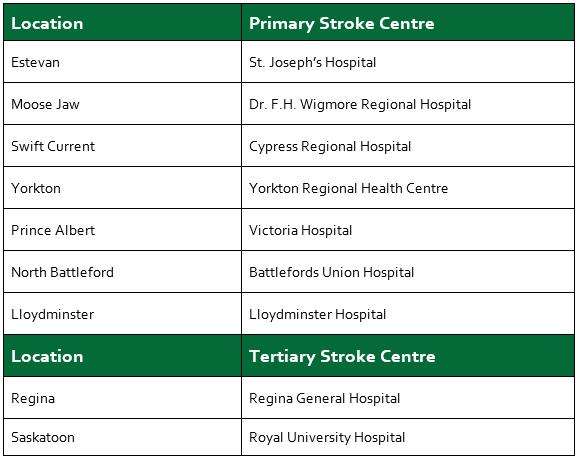It’s the third leading cause of death in Canada and the number one cause of long-term disability. Now, a Saskatoon doctor who is leading the revolution of stroke care in Saskatchewan has received a renewal in funding.

This,with a former but still familiar patient on hand at the announcement who said he owes Dr. Michael Kelly his life.
READ MORE: Stroke in young Canadians is on the rise, Heart & Stroke warns. Here’s why
Accompanied by his wife, Donald Bickerdike said he suffered a massive stroke just four months ago.
He was told by doctors it was one of the worst a person could suffer, although you wouldn’t know it by looking at him today.
“I came home from work, I was going through a couple newspapers, got my cell phone and I blacked out,” Bickerdike said.
He would be one of 1,751 people to suffer a stroke in Saskatchewan in 2015-16. According to experts almost half of all stroke patients will experience some permanent or long-term disability as a result.
Which is why Bickerdike’s story is so remarkable. After being rushed immediately to hospital by paramedics – he was operated on.
READ MORE: Saskatchewan implements new pathway protocols for stroke patients
He would remain at Royal University Hospital for two weeks, then spend another 14 days at Saskatoon City Hospital for therapy. He then walked out after being discharged on his own two feet.
“I went back home after that period of time, got my driver’s license about a week after that and carried on with my life.”
He credits his miracle maker, Dr. Kelly with saving his life.
Kelly has held the position of the Saskatchewan Research Chair in clinical stroke research since 2012.
He has been granted a renewal of $1.5 million in funding from three different organizations: the Heart and Stroke Foundation, Saskatchewan Health Research Foundation, and the University of Saskatchewan College of Medicine.
The commitment to improve stroke care and research in the province is focused on three areas: basic science research, robust clinical trials and an improvement in stroke care.
Although nothing is still more vital for better health outcomes than if the patient is seen quickly when a stroke is suspected.
“One problem we have in the province is 911 activation for stroke are not as high as they should be,” Kelly said.
“If you call 911 there’s a clear cut protocol of where you should go and where you should be taken.”
READ MORE: Saskatoon woman warning others about uncommon signs of a stroke
Here are the primary stroke centres in Saskatchewan, where a patient should receive care:

Time is of the essence according to Kelly. One of the most effective stroke mitigating therapies performed at RUH is done ideally within 90 minutes of a patient’s arrival at hospital.
“Somebody who has endovasicular therapy is about twice as likely to survive and more recent studies not quite yet published showing somewhere between 30 to 50 times more likely to be independent or a more reasonable outcome if they have endovasicular therapy” Kelly stated.
That’s the exact therapy Bickerdike received allowing him to get a second chance to do all the things his heart desires at just 75-years young.




Comments